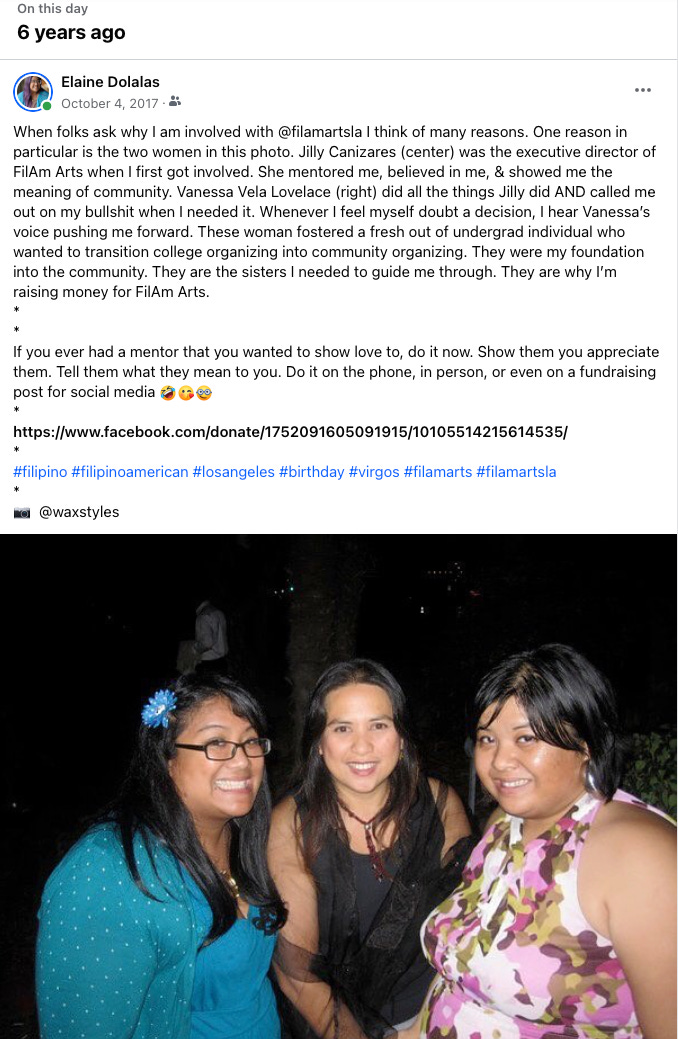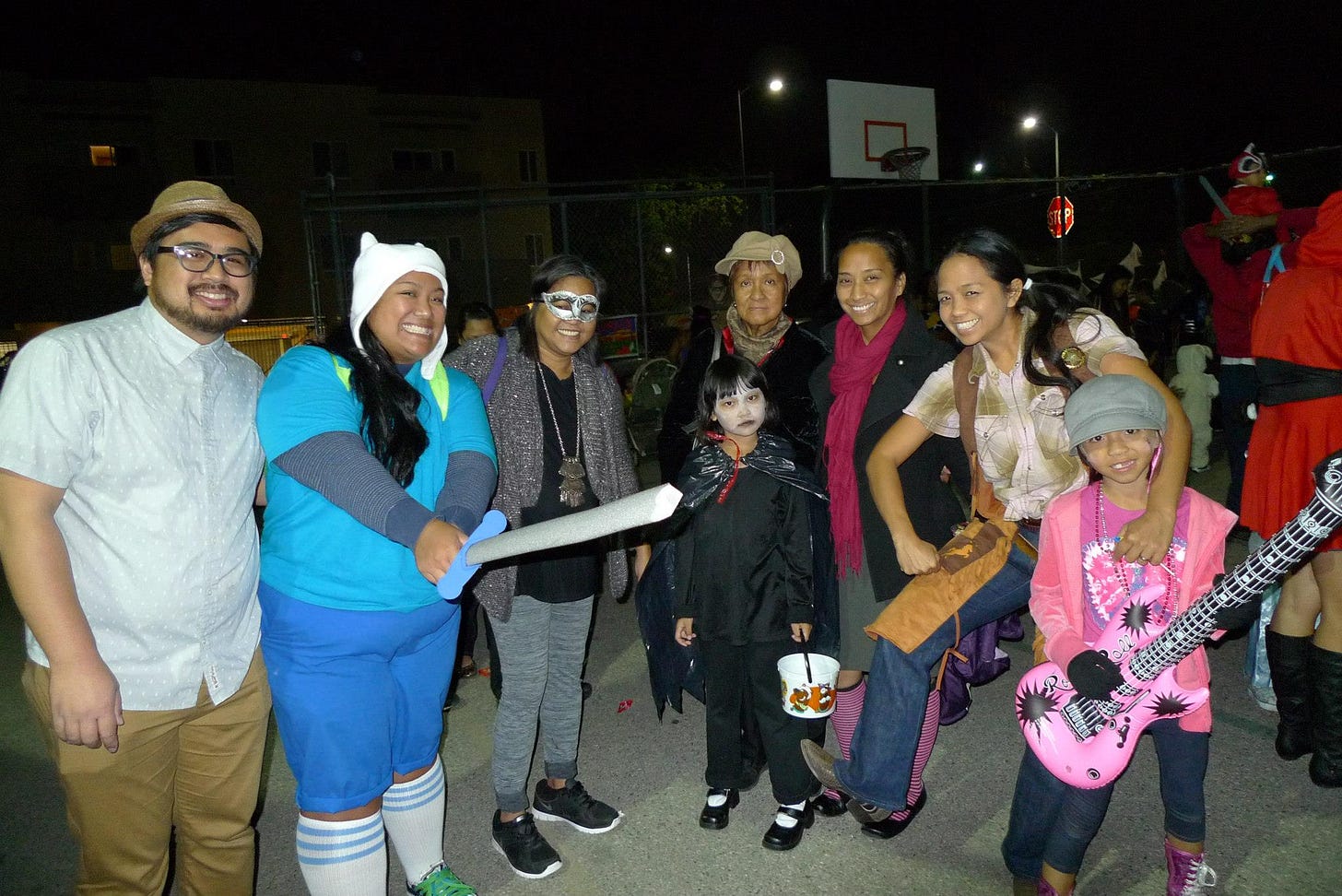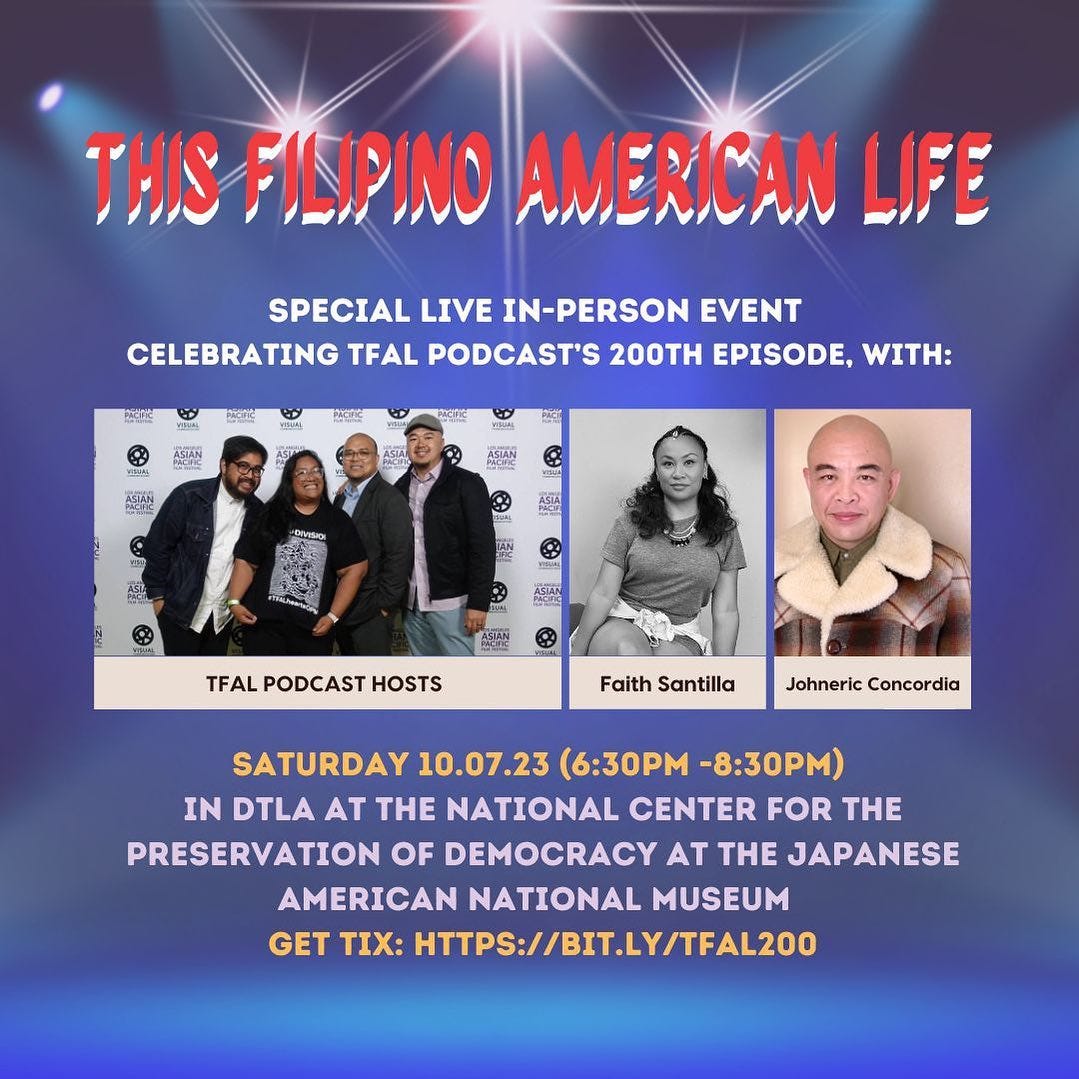After UC Irvine, Mike and I moved to Los Angeles in different ways. I moved back in with my parents. Mike moved to a studio apartment in Koreatown close to the law school he would be attending. That first year after college was a blur of transition.

I transferred stores and continued to work as a barista at Borders in Sherman Oaks. When shifts started being tough to come by, I got a temp gig at Countrywide Home Loans. I also found myself volunteering with FilAm Arts, a local Filipino American arts non-profit that produced the Festival of Philippine Arts & Culture (FPAC)

Law school decided it wasn’t for Mike and he ended up getting a job at Search to Involve Pilipino Americans (SIPA), a Filipno American based youth and family services center in Historic-Filipinotown. Through SIPA we met Lolit Lledo, who was Mike’s boss at SIPA. Lolit mentored Mike and I through the lens as someone who survived being an anti-Marcos organizer in the Philippines who survived torture under the Marcos regime. Lolit introduced Mike and I to Pilipino Workers Center (PWC), a Filipino American non profit that works on organizing domestic workers and advocating for changes to domestic labor policies.
FilAm Arts, SIPA, and PWC would be our community organizing post-bac experience. Mike and I both learned what it meant to be boots on the ground community organizers. When folks ask “What does a community organizer do?” The response in my head is, “What doesn’t a community organizer do?”
To me the job entails the following:
Producing Events
Whether it is a festival, a workshop, a gala, a party, a dinner, a 5k, an arts experience. We learned how to produce events with the purpose of sharing the Filipino American experience with the Los Angeles community. We learned to do it with a shoestring budget or no budget at all.
Writing
Be it grant reports, fundraising pitches, email blasts, bios, film summaries, press releases. We learned how to convey these messages to various audiences. We learned professional voice, community voice, homie voice, and most importantly our own voice.
Relationship building
The most important skill I learned from various mentors is the is relationship building. Community organizing is based on building relationships with people. Showing up to events. Buying a raffle ticket. Supporting an artist by purchasing their work. Marching in a rally. Having coffee or a meal with a collaborator. Making eye contact with every conversation. Understanding that we are here to help each other. These moments all foster relationships and lay the foundation for community work.
The work community organizing work we did in our 20s transitioned to graduate school in our late 20s/early 30s which lead to realizing that the work needed to change. Another transition needed to happen.
In 2016 Joe, Ryan, and I went out to dinner where they pitched the idea of This Filipino American Life (TFALpodcast). I liked the idea of being able to pivot our experiences into a new medium. I brought Mike along since he is the tech guy who happens to have podcasting equipment already in our house. It felt like a win win. We recorded our first episode with our friends Joel Quizon and Glenda Gamboa. They shared their experiences as Filipino American parents. We had no idea what we were doing but I knew one thing, we were having fun.
TFALpodcast is a creative project that has introduced me to so many amazing individuals. The opportunity to share Filipino American stories blows my mind. We’re about to hit 200 and that is wild to me. Who would have thought all those years ago that we would get to this point?

Help us celebrate TFAL 200 by joining us for the TFAL 200 Live Event! The $15 Pre-Sale ticket ends on Friday! Get tickets now before they go up at the door!







